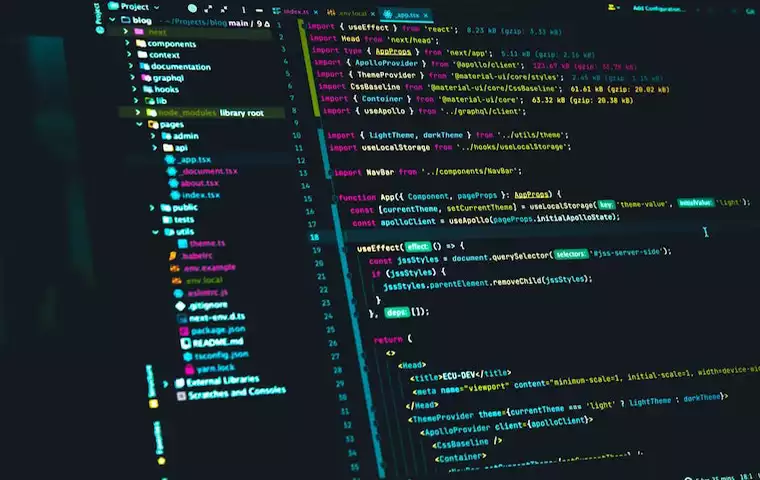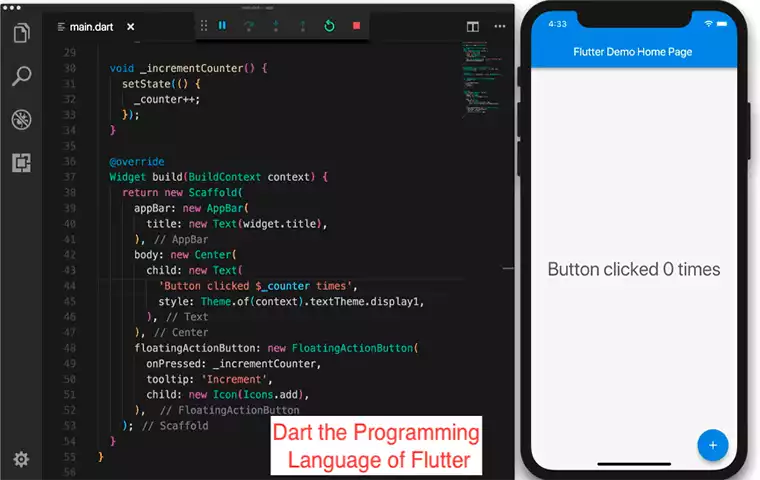The New Era of AI in 2025: From Gemini 3 to Creative AIs
Learn about the best AI tools for 2025, including Nano...
We use cookies for our website to give you the most relevant experience by remembering your preferences. By clicking “accept”, you consent to use of ALL the cookies
This website uses cookies to improve your experience while you navigate through the website. Out of these, the cookies that are categorized as necessary are stored on your browser as they are essential for the working of basic functionalities of the website. We also use third-party cookies that help us analyze and understand how you use this website. These cookies will be stored in your browser only with your consent. You also have the option to opt-out of these cookies. But opting out of some of these cookies may affect your browsing experience.
Necessary cookies are absolutely essential for the website to function properly. These cookies ensure basic functionalities and security features of the website, anonymously.
| Cookie | Duration | Description |
|---|---|---|
| cookielawinfo-checkbox-functional | 11 months | This cookie is set by GDPR Cookie Consent plugin. The cookie is used to store the user consent for the cookies in the category “Analytics”. |
| cookielawinfo-checkbox-functional | 11 months | The cookie is set by GDPR cookie consent to record the user consent for the cookies in the category “Functional”. |
| cookielawinfo-checkbox-necessary | 11 months | This cookie is set by GDPR Cookie Consent plugin. The cookies is used to store the user consent for the cookies in the category “Necessary”. |
| cookielawinfo-checkbox-others | 11 months | This cookie is set by GDPR Cookie Consent plugin. The cookie is used to store the user consent for the cookies in the category “Other. |
| cookielawinfo-checkbox-performance | 11 months | This cookie is set by GDPR Cookie Consent plugin. The cookie is used to store the user consent for the cookies in the category “Performance”. |
| viewed_cookie_policy | 11 months | The cookie is set by the GDPR Cookie Consent plugin and is used to store whether or not user has consented to the use of cookies. It does not store any personal data. |
Functional cookies help to perform certain functionalities like sharing the content of the website on social media platforms, collect feedbacks, and other third-party features.
Performance cookies are used to understand and analyze the key performance indexes of the website which helps in delivering a better user experience for the visitors.
Analytical cookies are used to understand how visitors interact with the website. These cookies help provide information on metrics the number of visitors, bounce rate, traffic source, etc.
Advertisement cookies are used to provide visitors with relevant ads and marketing campaigns. These cookies track visitors across websites and collect information to provide customized ads.
Other uncategorized cookies are those that are being analyzed and have not been classified into a category as yet.
Cyberia Tech, Inc. respects your privacy. This Privacy Policy explains how we collect, use, and share your information. By using our services, you agree to this policy. If any other agreements conflict with this Privacy Policy, the terms of those agreements prevail.
Cyberia Tech complies with the EU-US and Swiss-US Privacy Shield Frameworks for handling personal data from the EEA, UK, and Switzerland. In case of any conflict, the Privacy Shield Principles prevail. Learn more at Privacy Shield. Key Definitions
Information linked to an individual, transferred from the EEA, UK, or Switzerland to the U.S.
Data revealing race, religion, health, sexual orientation, and similar categories.
Effective Date: [ 2026 / 03 / 04 ]
Welcome to The Cyberia Tech ! By accessing or using our website or services, you agree to
comply with and be bound by these Terms of Use and our Privacy Policy. If you do not agree with
these terms, please do not use our Services.
Loading
0 %

Programmers and developers must be familiar with the best backend technology for mobile apps.
The best backend framework for mobile apps determines which of them will meet your expectations.
Because proper technology is essential for performance and user satisfaction, this topic relates to code structures and programming tools.
What you read will introduce each of them to help you make a better decision so that you can build the most powerful and best mobile app backend.
Table of Contents
Backend app development frameworks are analogous to schools. It implies that there are more rules.
You are actually calling your codes in the framework. Mobile app frameworks are used on the server to simplify developer tasks.
The best backend framework for a mobile app is like a master for the application functionality.

Selecting the appropriate development technology will have a significant impact on the way your application is utilized. Let’s examine each of them to determine how we can improve it.
Here is a list to give you some information about the top 7 technologies in case of the backend:
One of the admirable and grand open-source backend to build a robust, scalable mobile app. An ideal choice when you are thinking about complex apps.
It will support performing heavy queries at a reasonable price—a relational data model and secure. The exciting part of this framework is the ready-to-use building blocks that manage the whole server side.
The popular Firebase is one of the right choices for the time your goal is on the app experience. The services of this NoSQL database framework are a whole package. It covers so many options, such as:
It is simple and easily connected with third-party authentication. Having these options will save money. Since it brings you the flexibility of pay as you go. There are some cons as well. Such as
2. JS
A framework used in both web and mobile applications. It is created on the upper layers of Node js to handle servers. As its name is clear, it is written in javascript. On the other hand, it is:
Express. Js is one of the frameworks that you can use to build your app in Node with less time-consuming. It has fast server-side development.
It is a middleware, meaning the performed functions are in the middle of one software layer. Actually, it is a lifecycle of a server.
3. Laravel
One of the preferred choices is the best backend technology for mobile apps. PHP’s hands will allow you to create a top-notch app.
This fully-featured app helps you to deal with making complicated apps quickly.

Laravel catching system keeps cached items for proper app development.
Larval can grant your expectations whether you want a simple or complex app.
4. Django Rest
A flexible framework that is used with React Native to build a cross platform app that is usable on both Android and iOS Operating systems.
It is responsible for creating APIs in processing data, and React Native is watching an eye on the front end.
The pros of this framework are giving you a choice between other options such as Flutter, Ionic, and native script to build the front-end part.
5. Ruby on Rails
If you want to have a fast and smooth app creation process, this framework may become helpful. A suitable one to have a server-side fully managed with MVC (Model View Controller). Its mission is to develop user interfaces, data, and controlling logic.
6. Flask
The name is weird. But this framework is practical regarding having an app in Python. It makes you use codes for native mobile apps. It has some positive factors, such as:
You can read more about this framework in this video at 3:30 minutes. Various technologies are available for developers. That’s why realizing the best backend for mobile apps is like choosing the right grape for making the best white wine. So, intelligently evaluate them and build your app.
The world of mobile application development has many empty places to grow. We have a significant number of Android users.
Creating an app in this operating system has its own given options. Some frameworks are popular among Android builders.
Here is a list to become familiar with each of them. Some of them are brand new in this industry.
The free and simple syntax that is commonly used for mobile game development. The popular angry birds, for example. But still has its usage in general apps too. Some of the positive points are:
2. Sencha Touch for Android
It is specifically developed for building a native mobile app on Android applications. It uses javascript and HTML5 to have a high-powered and robust performance. It has:
3. Appcelerator Titanium
It is an open-source SDK that developers use. Can create their apps with javascript. With this ability, developers can use 60%-90% of the existing code. The most significant of all is native API access to all iOS, windows, HTML5, or even Blackberry. Moreover, it has specific hardware features. Legoland is an example of an Appcelerator Titanium.
4. Flutter
The challenging open-source framework is written in Dart language and has a single codebase. Although it is new, it has gained popularity among developers. It has:

Apps such as Google and Tencent are using Flutter.
5. Phonegap
The other open-source framework that uses HTML5, CSS, and javascript) to create and design the app.
Some of the developers admitted that PhoneGap’s productivity is for letting them view and make changes simultaneously. Other critical options are:
Wikipedia is a famous example of PhoneGap.
You are aware that the Android and iOS backend languages worlds are distinct. Some of these are popular with all developers. Let’s go through them one by one. The point is that mobile app languages are similar to web development languages.
Objective-C and Swift are the languages that power iOS. Because they are object-oriented, they significantly reduce the time and effort required to write new programmes. Despite this, Swift’s popularity has grown among all sorts of programmers. Furthermore, C#, HTML5, and Java are employed as front-end languages.
There are numerous Android languages. They’ve improved the apps to the point that they now serve as a model for mobile app backends.
A popular programming language for generating apps for the Android platform. It relies on the Kivy and beeware libraries to work. Each of these libraries has a distinct application:
One of the best programming languages for demanding 3D mobile games. These languages are utilised in the development of cutting-edge web browsers such as Mozilla Firefox and Google
Chrome. A foundation in C/C++ is beneficial to modern languages such as Java, Python, javascript, and Numpy (a Python library used in AI and ML).
” One of the best programming skills you can have is knowing when to walk away for a while ”
3. Java
Almost all general-purpose applications use Java. It has surpassed Python in terms of popularity. A stable language with automatic memory management that is simple to learn.
4. Kotlin
This programming language is considered to be a better variant of Java. It is simple to use and set up. It has a stream operator, security, a 40% reduction in code development time, and other helpful features.
5. PHP
It is another sophisticated but old language for skilled developers that provides a variety of possibilities. Examples include:
• Simplifying the app’s maintenance
• Increased security
• No further codes are required.
• Compatible with the majority of servers
Backend programming languages provide the criteria for determining which ones suit your needs. So, Remember that choosing the best backend framework for mobile app will recognise the value of your mobile app idea. Consider your options carefully.
Which backend is best for mobile app?
Here is the list of the best mobile app backend frameworks for 2022–2023:
NodeJS, Features of NodeJS include:
What is the best backend language for mobile app development?
When making Android apps, C++ is often the language of choice for the backend. Because it is a strong language that can handle difficult jobs. For example, to talk to Bluetooth devices or GPS data sources, you’ll need C++ on the back end of your device.
What is the best technology to build mobile apps?
Flutter explains Best Mobile App Development Frameworks in 2022. Flutter is Google’s open-source framework for building native Android and iOS apps from a single script.
Native React Ionic
Apache Xamarin Native Script The town of Cordova
The 7th Framework
The JQuery Mobile
Is NodeJS good for mobile app backend?
Node.js is used a lot on the back end of apps, such as Express. Js to make the back end of traditional web apps. It is also used for server-side writing and event-driven systems like websites and API services on the back end.
Is Python good for mobile backend?
Python has become the world’s most flexible computer language. Now that there are resources and tools for Python app creation, your project can also take advantage of its ease of use, variety, and freedom when making mobile apps. It’s quick and could save you both time and money.
What is the fastest backend technology?
The top eight languages for back-end development are:
Go. Go is the back-end programming language that is growing the fastest and that companies like Uber, YouTube, and Spotify want the most.
Python (Python)
What is JavaScript?
Rust
Java
PHP
SQL Ruby
Your new idea, as well as selecting the best backend technology for mobile apps, are related to numerous factors.
How complex is your app, what is its usage, which platform are you considering building on, and who is your target audience?
Your succession’s fate is at the heart of the best backend framework for mobile apps.
Throughout the article, we attempted to show you various items to compare and distinguish between the best backend for mobile apps.
Cyberiatech can assist you in developing the best one for your mobile application. So, don’t hesitate to contact us and share your thoughts.
You Can Get More Information!
